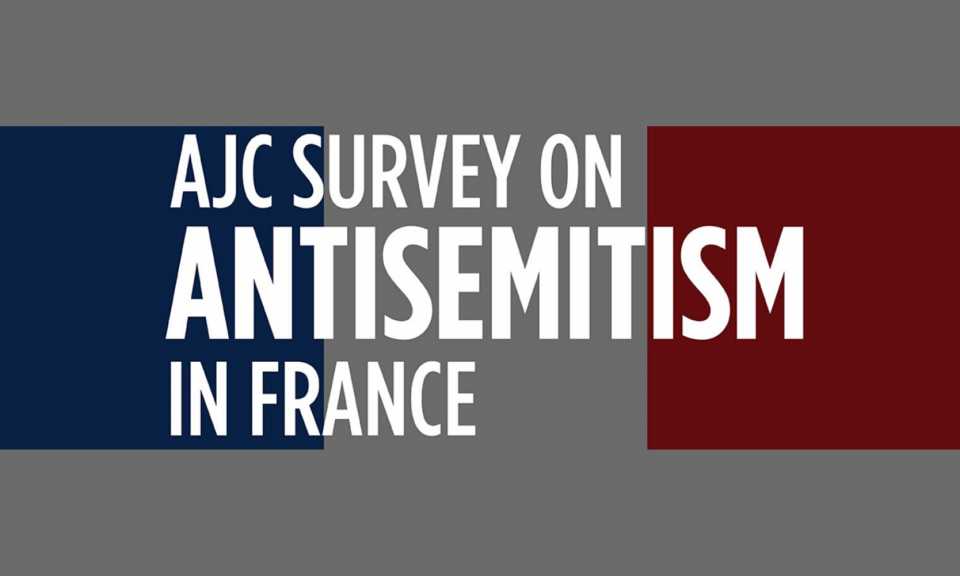Analysis
The New Face of European Anti-Semitism
By Daniel Schwammenthal
The Wall Street Journal Europe
13 November 2013
This past weekend was the 75th anniversary of Kristallnacht, the 1938 Nazi pogrom against German Jews, and European commentary focused predictably on the traditional anti-Semitic threats from the far right. The recent rise of openly anti-Jewish parties in Greece and Hungary shows that this remains a problem that authorities and civil society must confront without equivocation.
But in many parts of the Continent, things are more complex. As German author Henryk Broder quipped, if after 1945 Europe experienced anti-Semitism without Jews, we are now experiencing anti-Semitism without anti-Semites.
As a 2011 study in eight European countries by the Friedrich Ebert Foundation concluded: "Data show anti-Semitism often appearing in the guise of criticism of Israel." Unlike classic anti-Semitism, which is now largely taboo in polite company, demonizing Israel is mainstream.
"The Protocols of the Elders of Zion," that Russian forgery purporting to reveal a Jewish cabal bent on world domination, may not be acceptable dinner conversation any more. But repackage the sentiment as criticism of Israel, and say that the Jewish lobby controls U.S. foreign policy against "true" American interests, and voilà, you are no longer dabbling in nasty old tropes about sinister Jewish power, but in bold political analysis.
Thus, when former British foreign minister Jack Straw, during a conference last month in the House of Commons, listed the American Israel Public Affairs Committee and its allegedly "unlimited" funds among the greatest obstacles to peace between Israelis and Palestinians, he thought nothing controversial about it.
For many Europeans, U.S. support for Israel—the only democratic ally in a sea of dictatorships, terrorism and civil war—remains so unfathomable that they can only explain it as the product of nefarious Jewish money for equally nefarious purposes. If a Labour MP can speak publicly like this without triggering any rebuke from his or other parties or from the mainstream media, one can only imagine what is said privately in daily European life.
We know what people are telling the pollsters, at least. According to the Friedrich Ebert study, 63% of surveyed Poles and 48% of Germans agreed with the statement that "Israel is conducting a war of extermination against the Palestinians." Forty-one percent of Britons and 42% of Hungarians agreed. In the other surveyed countries, agreement was in the high 30s the lowest level was 38%, among Italians. Additionally, 55% percent of Poles and 36% of Germans agreed with the statement that "considering Israeli policy I can understand why people don't like Jews."
For the other surveyed countries, the level of agreement with this statement ranged from the mid 30s to the high 40s. Realizing the depth of the problem already in 2005, the European Union Monitoring Center on Racism and Xenophobia (EUMC) drafted a working definition of anti-Semitism that specifically included the targeting of Israel, "conceived as a Jewish collectivity."
The EUMC listed such examples as questioning the Jewish right to self-determination by calling Israel a racist endeavor, applying double standards against Israel, comparing Israel to Nazi Germany, or holding Jews responsible for Israel's actions.
The draft definition, despite being praised by the U.S. State Department and the Organization for Security and Cooperation in Europe, has yet to be adopted. Now, the EU Agency for Fundamental Rights, the EUMC's successor, documents in a new study that an alarmingly high proportion of Jewish citizens have experienced harassment, threats, vandalism and physical attacks. This first survey to collect comparable data across EU states on Jewish experiences of anti-Semitism shows how European Jews suffer from Israel's vilification.
According to the survey, released last Friday, 21% of respondents have experienced at least one incident of anti-Semitic "verbal insult or harassment and/or a physical attack" in the past 12 months. Forty-eight percent of respondents have "frequently" or "all the time" seen or heard the accusation, in the last 12 months, that "Israelis behave to the Palestinians like the Nazis to the Jews."
In Belgium, Italy and France, around 60% reported this. In the U.K., Germany and Sweden, 40%-50% did. Twenty-three percent of respondents in all eight surveyed countries said that at least occasionally they avoided Jewish events or sites. Another 29% have considered emigrating in the past five years. In Hungary, France and Belgium, 40%-48% have considered emigrating. EU leaders can no longer ignore the grotesque misconceptions about the Jewish state.
By adopting the EUMC's working definition of anti-Semitism, the EU would have an excellent tool to differentiate between legitimate criticism of Israel on the one hand and bigotry on the other, while sending a strong signal that it won't tolerate the latter.
This is not just a question of the image of an entire nation or the future of bilateral relations between European countries and Israel. At stake is the future of European Jewry—or, given the high number of Jews who have contemplated emigration, whether there will be such a future at all.
Mr. Schwammenthal is director of the AJC Transatlantic Institute in Brussels.









